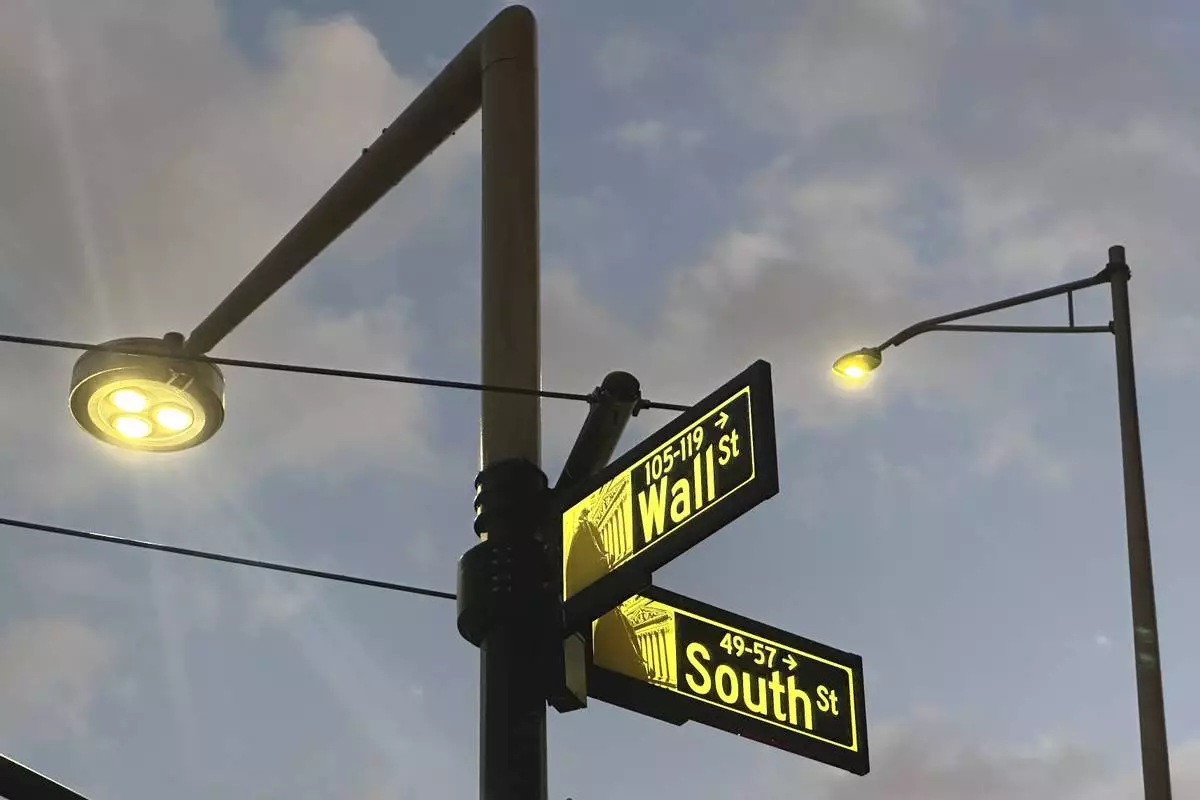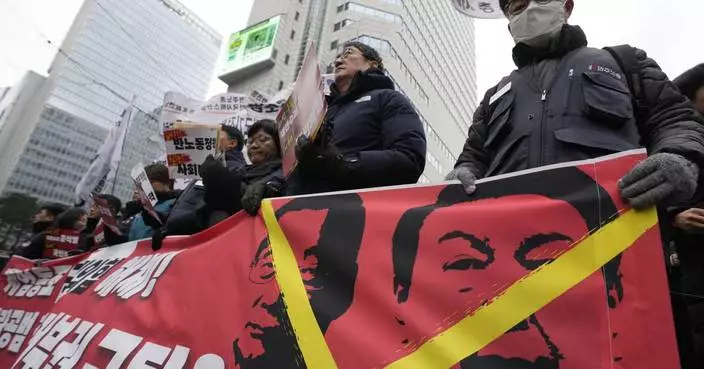BERLIN (AP) — An overnight protest by climate activists at Leipzig/Halle Airport in eastern Germany forced a three-hour halt to cargo flights, officials said Thursday.
The protest by the Last Generation group followed demonstrations last week at Cologne-Bonn Airport and then at Frankfurt Airport, Germany's busiest, which significantly disrupted passenger flights.
Federal police said five activists attached themselves to the ground inside the airport perimeter shortly after midnight, and another two were prevented from doing so, German news agency dpa reported. They were removed at about 5 a.m. Last Generation said they didn't set foot on the runways.
Leipzig/Halle is an important air freight hub. Airport spokesperson Uwe Schuhart said air cargo movements had to be suspended for about three hours starting at 12:30 a.m.
There didn't appear to be a significant impact on passenger flights, which don't arrive and depart during the night. The airport's website showed the first plane leaving at 5:41 a.m., about 15 minutes late.
Police said the activists, who had cut a hole in the perimeter fence, were detained.
Last Generation is demanding that the German government negotiate and sign an agreement on a global exit from the use of oil, gas and coal by 2030.
Last month, the German Cabinet approved legislation that would impose tougher penalties on people who break through airport perimeters.
The bill, which still requires approval by lawmakers, foresees punishment ranging up to a two-year prison sentence for people who intentionally intrude on airside areas of airports such as taxiways or runways, endanger civil aviation, or enable someone else to. Currently such intrusions only draw a fine.

Climate activists sit on a tarmac at Leipzig-Halle Airport in Schkeuditz, Germany Thursday, Aug. 1, 2024. Several activists are demonstrating for more climate protection at the airport. (Julius-Christian Schreiner/dpa via AP)
HONG KONG (AP) — Asian markets were mostly higher on Tuesday, with Chinese markets logging gains of more than 1% after the Chinese finance minister promised a more pro-active approach to government spending in the coming year.
U.S. futures were little changed in quiet Christmas Eve trading and oil prices rose.
Japan’s benchmark Nikkei 225 slipped 0.3% to 39,036.85.
Honda’s shares surged more than 12.2% as the Japanese automaker announced an up to 1.1 trillion yen ($7 billion) share buyback after it announced Monday that it was seeking a merger with its larger but troubled rival Nissan.
The two companies said they had signed a memorandum of understanding on Monday and that smaller Nissan alliance member Mitsubishi Motors Corp. also had agreed to join the talks on integrating their businesses. Nissan's shares rose 6%.
The Hang Seng in Hong Kong added 1.1% to 20,098.29 and the Shanghai Composite index was up 1.3% at 3,393.53.
Chinese Finance Minister Lan Fo'an told a financial work conference that Beijing will increase the fiscal deficit in 2025 and step up spending, issuing more government bonds and increasing transfers to local governments to help ensure they can deliver guarantees to the public for housing, heating and food, according to the ministry's website.
The comments were the latest by top leaders aimed at assuaging concern over the slowing growth of the world's second-largest economy.
South Korea’s Kospi lost 0.1% to 2,440.52 as a report said consumer sentiment dropped sharply in December after President Yoon Suk Yeol declared martial law and then was impeached by lawmakers.
Elsewhere in Asia, Australia’s S&P/ASX 200 advanced 0.2% to 8,220.90.
Taiwan’s Taiex gained 0.1%, with shares in Taiwan Semiconductor Manufacturing Co., the world's biggest computer chip maker, hitting a record high.
On Monday, the S&P 500 ended 0.7% higher at 5,974.07. The Dow Jones Industrial Average eked out a 0.2% gain to 42,906.95. The tech-heavy Nasdaq composite rose 1% to 19,764.89.
The Conference Board said its consumer confidence index fell to 104.7 from 112.8 in November. Wall Street had been expecting a reading of 113.8.
The unexpectedly weak consumer confidence update followed several generally strong economic reports last week. One report showed the overall economy grew at a 3.1% annualized rate during the summer, faster than what was thought earlier. The latest report on unemployment benefit applications showed the job market remains solid.
Inflation concerns have added to uncertainties heading into 2025, which include the jobs market and shifting economic policies under President-elect Donald Trump.
Wall Street has several economic reports to look forward to this week, including a weekly update on unemployment benefits on Thursday.
Markets in the U.S. will close at 1 p.m. Eastern on Tuesday for Christmas Eve and will remain closed on Wednesday for Christmas.
In other dealings early Tuesday, U.S. benchmark crude oil picked up 37 cents to $69.61 per barrel. Brent crude, the international standard, was up 41 cents at $72.73.
The dollar fell to 157.05 Japanese yen from 157.17 yen. The euro fell to $1.0394 from $1.0405.

A currency trader reads documents at the foreign exchange dealing room of the KEB Hana Bank headquarters in Seoul, South Korea, Tuesday, Dec. 24, 2024. (AP Photo/Ahn Young-joon)

Currency traders watch monitors near a screen showing the Korea Composite Stock Price Index (KOSPI), top left, and the foreign exchange rate between U.S. dollar and South Korean won, top center, at the foreign exchange dealing room of the KEB Hana Bank headquarters in Seoul, South Korea, Tuesday, Dec. 24, 2024. (AP Photo/Ahn Young-joon)

Currency traders watch monitors near a screen showing the Korea Composite Stock Price Index (KOSPI) at the foreign exchange dealing room of the KEB Hana Bank headquarters in Seoul, South Korea, Tuesday, Dec. 24, 2024. (AP Photo/Ahn Young-joon)

FILE - Signs mark the intersection of Wall and South Streets in New York's Financial District on Nov. 26, 2024. (AP Photo/Peter Morgan, File)














